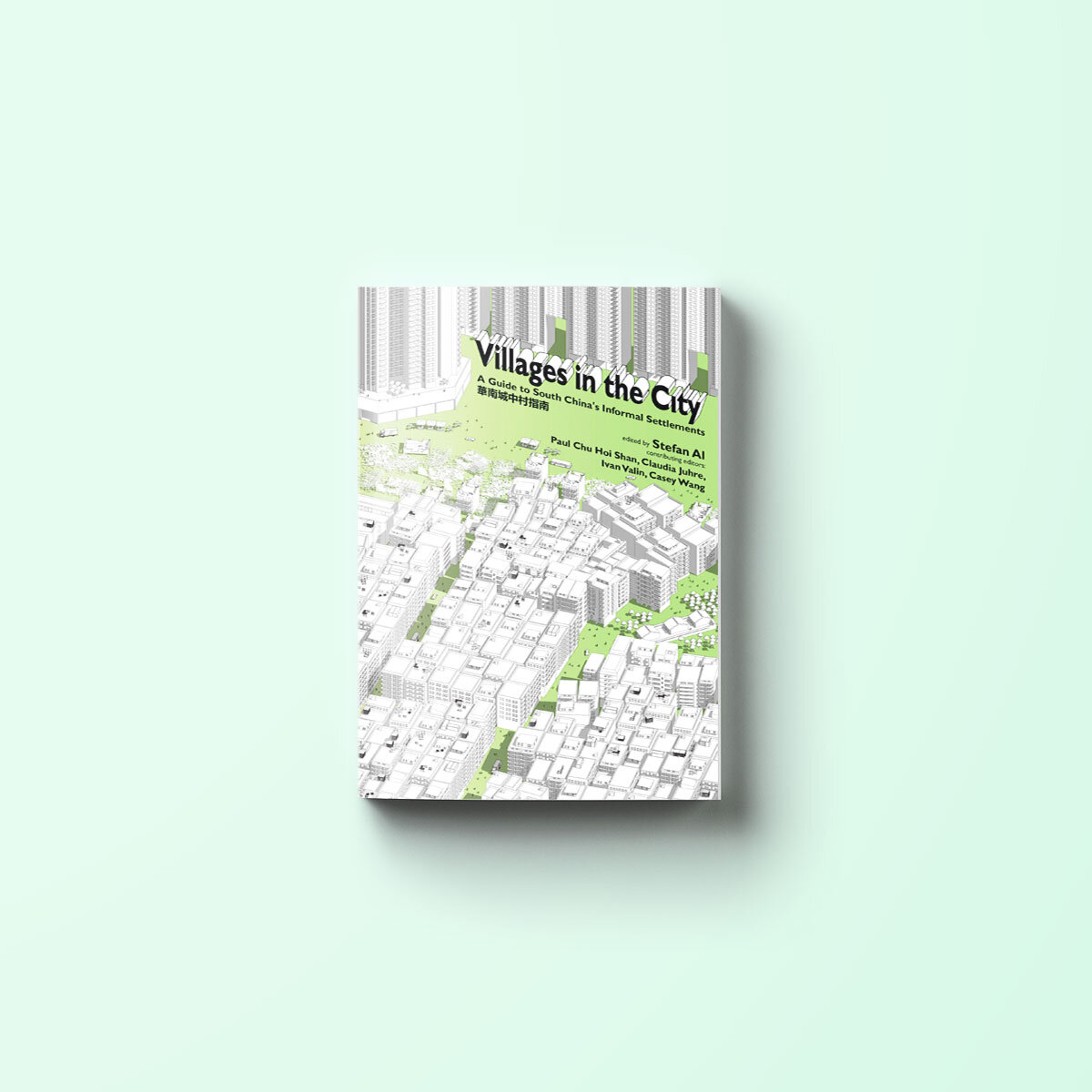Villages in the City: A Guide to South China’s Informal Settlements
A record of China's unique informal settlements - from the rise to the fall of "handshake houses" - and how they parallel nationwide urban and demographic change
Reviews of Villages in the City: A Guide to South China’s Informal Settlements
"Recent years have seen a growing interest in creative and informal urbanisms of a wide variety.... One of the best is Villages in the City edited by Stefan Al... a fabulous piece of architecture and design graphica... The book succeeds by investigating and advocating for the informal without fetishizing it."
—Architectural Record
"A relevant and valuable contribution to understanding the special problems posed by urban villages in the Pearl River Delta"
—Traditional Dwellings and Settlements Review
"A meticulous record of the villages with essays and beautiful images..."
—The Dutch Review of Books
"A great book to learn about modern city development in China. It offers a lot of new perspectives regarding the phenomenon of urban villages, their rise and demolition, as well as the special role they play for migrants trying to cut their teeth in the city."
—Pop-Up City
“A wonderfully unique and comprehensive glimpse into the urban villages that are an integral part of the conurbations of the Pearl River Delta... The relevance and value of Villages in the City: A Guide to South China’s Informal Settlements is unquestionable... As a study that fills a critical void on urban space and settlement evolution in contemporary China and a feat of graphic dexterity, it continues to be a crucial addition to urban geography scholarship and city visuals.“
—Spacing Vancouver
"How do we make sense of China's urbanization, given its scale and its seeming chaos? Architect and professor Stefan Al has come out with two volumes that help sort out Southern China's project of modernization and development, both its factory complexes and its urban villages. Both works go inside the areas they study, and are generously illustrated with photographs, drawings and maps. Villages in the City, the more recent of the two volumes and a companion to Factory Towns of South China, documents the peculiar phenomenon of what are nominally farming villages now surrounded by high-rises."
—Asian Review of Books
"This book is an important and up-to-date record of China's urban villages... the villagers have managed to bypass planning and construction codes and rebuilt their villages into high-density neighborhoods that are housing millions of migrants in the cities... The spatial characteristics of these urban settlements have been understudied. This book will therefore be an invaluable addition to the existing research on China's distinctive trajectory of urbanization."
—Lanchih Po, adjunct associate professor, University of California, Berkeley
Synopsis of Villages in the City: A Guide to South China’s Informal Settlements
Countless Chinese villages have been engulfed by cities. They no longer consist of the picturesque farms of rural China, but of high-rises so close to another that they create dark claustrophobic alleys – jammed with dripping air-conditioning units, hanging clothes, caged balconies and bundles of buzzing electrical wires – crowned with a small strip of daylight, called by locals “thin line sky.” At times, buildings stand so close to another that they are dubbed “kissing buildings” or “handshake houses” – you can literally reach out from one building to reach over and shake hands with your neighbor.
Villages in the City argues for the value of urban villages as places. Although it is easy to misperceive these villages as slums, a closer look reveals that they offer an important, affordable, and well-located entry point for migrants into the city. They also offer a vital mixed-use, spatially diverse and pedestrian alternative to the prevailing car-oriented monotonous modernist-planning paradigm in China. Yet, most of them are on the brink of destruction, affecting the homes of millions of people and permanently eradicating a unique urban fabric.
Table of Contents
Acknowledgements
1. Introduction: Villages in the City: A Guide to South China’s Informal Settlements, by Stefan Al
2. The City in between the Villages, by Marco Cenzatti
3. The Beginning of the End: Planning the Destruction of Guangzhou’s Urban Villages, by Margaret Crawford and Jiong Wu
4. Village by the Special Economic Zone: The Dafen Paradigm of China’s Urbanization, by Jiang Jun
5. City-in-the-Village: Huanggang and China’s Urban Renewal, by Nick R. Smith
6. Village-in-City as a Sustainable Form of social housing communities for China: A Tale of Four Villages in Shenzhen, by Laurence Liauw
Xiasha Village, Shenzhen
Dafen Village, Shenzhen
Gangxia Village, Shenzhen
Jiekou Village, Dongguan
Tianjia Village, Dongguan
Shipai Village, Guangzhou
Wanshengtang Village, Guangzhou
Sanyuanli Village, Guangzhou
Bitang Village, Foshan
Hedang Village, Foshan
Selected Bibliography
Villages in the City: A Guide to South China’s Informal Settlements
EDITED BY Stefan al. Contributing editors: Paul Chu Hoi Shan, Claudia Juhre, Ivan Valin, Casey Wang
See here for a list of Stefan Al’s other books



